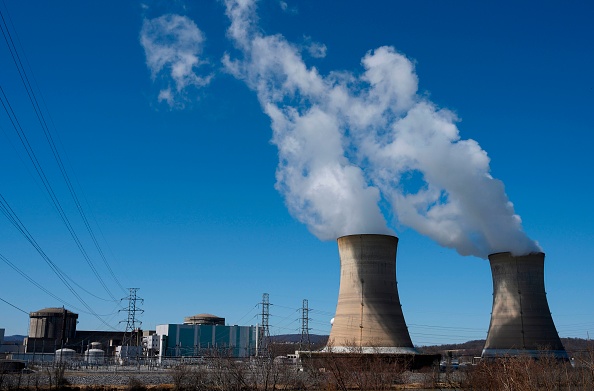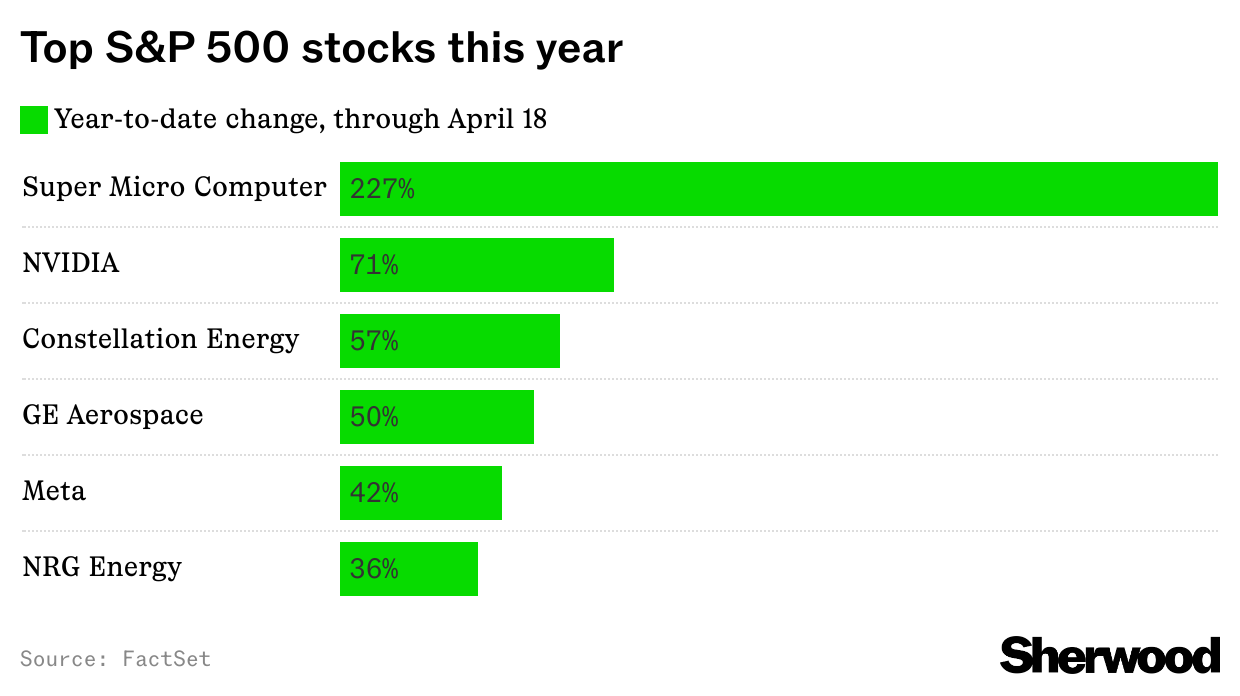Wednesday Feb.09, 2022
⛽ Biden’s Russia pipeline problem
Watching Peloton on Netflix, or Netflix on Peloton? [pixdeluxe/E+ via Getty Images]
Hey Snackers,
It’s National Pizza Day, but you might want to try a different kind of takeout: a North Carolina veteran won a $4M lottery prize using the numbers he got in a fortune cookie.
Stocks popped yesterday, boosted by strong earnings from Harley-Davidson and Amgen. In macro news: the US trade deficit hit a record $859B last year, as Americans splurged on clothes and computers made overseas. In Covid updates: California and Oregon are scrapping indoor mask mandates.
PeloFlix
Amazon or Nike might want to take Peloton for a spin, as the fit-tech company changes CEO and cuts jobs
Just keep spinning... The Peloton saga is building more drama than Nemo's shark encounter. The latest: Peloton cofounder John Foley is stepping down as CEO as the former pandemic darling struggles with sagging demand for its connected fitness equipment. Peloton will also cut 2.8K jobs — a fifth of its corporate roles — to narrow losses. The severance package for those employees includes… a one-year Peloton membership (facepalm).
- New guy: Subscription star Barry McCarthy, former CFO of Netflix and Spotify, is taking over as chief exec. Foley's becoming exec chairman.
- New plan: Slash $800M in yearly costs. Last month, Peloton was reported to be pausing bike and treadmill production. It’s now winding down plans for its new Ohio factory.
- Key quote from its new CEO: "Where the company got over its skis is it built out a cost structure as if Covid was the new normal.” Read: way overestimated demand.
Peloton Prime... a perk that could warrant Amazon's coming price hike. Rumors are swirling that Amazon and Nike are interested in buying Peloton, whose shares have plunged 80% from their 2020 peak. One analyst said Apple is “aggressively involved” too. Peloton shares have soared 56% this week on reports of big suitors. Last month, activist investor Blackwells Capital dropped a 65-page deck calling for Peloton to fire Foley and sell itself. According to Blackwells:
A spin-quisition may be premature… While a Netflix-Peloton integration is fun to imagine, a few factors indicate Peloton might not sell itself yet. The shiny new CEO and the cost-slashing plan suggest Peloton wants to revive itself solo. No sales talks with suitors have been reported, and Foley and other PTON insiders would likely need to approve any deal (because: voting power). Meanwhile, regulatory scrutiny of Big Tech deals is mounting. Amazon’s MGM deal, announced in May, still hasn’t been OK’d.
Nord
A lone gas pipeline could be the key to Russia-Ukraine diplomacy, but sanctions won’t be straightforward
Pressure in the pipeline… and on the border. Quick international-relations refresher: In late January, Russia stationed 100K troops near its border with Ukraine, fueling fears of an invasion. Russian President Putin says his country won’t invade, but the US and Germany have already been debating trade restrictions (aka: sanctions) on Russia for weeks. The goal: prevent invasion. On Monday:
- President Biden met with Germany’s new chancellor, Olaf Scholz, and vowed that Nord Stream 2 — a pipeline that carries gas from Russia to Germany — would be shut down if Russia invaded. Oil exports make up 30% of Russia’s economy, so it would take a hit.
- But Germany is the only country that can shut the Nord, and Scholz avoided confirming that he would. While Germany is a US ally, it relies on the Nord to heat 26M homes.
Regional pipe, global problem… If the US imposes economic sanctions, Russia could retaliate by shutting off all its fuel exports. Since Russia supplies more than a third of the EU’s natural gas, fuel prices across Europe could spike if Russian fuel exports run dry. And if there’s a trade war, other global industries would likely be affected too.
- Fewer planes: Boeing says the standoff threatens to disrupt plane production, since Russia produces titanium and other metals.
- Pricier grains: Global food prices could rise even more, because Russia and Ukraine produce a lot of the world’s wheat and corn.
- Reversed gains: Analysts say rising oil and food prices could exacerbate inflation and slow, or even reverse, global recovery.
Pipe-plomacy is a big test for sanctions… Nord Stream could become the center of the largest sanction ever (if Germany comes around). But Russia has “sanction-proofed” its economy for years by stockpiling its own cash (rubles) and on-shoring production. As Russia and China decouple from global markets, and digital currencies offer an alternative to USD-centered global trade, OG sanctions may prove less effective.
What else we’re Snackin’
- Pop: Pfizer more than doubled its quarterly sales thanks to Covid vaccines, but its new Covid pill is catching up: the pharma giant expects $22B in pill sales this year, versus $32B in vax sales.
- SoftArm: Citing strong antitrust backlash, Japanese investment goliath SoftBank scrapped plans to sell chip designer Arm to Nvidia in a deal that could’ve been worth $80B. Now, Arm might go for an IPO.
- Bitfinex: In its largest financial seizure ever, the DOJ took back $3.6B in crypto in connection to a 2016 hack in which criminals stole 120K bitcoins. The DOJ warned crypto isn’t a criminal “safe haven.”
- Swipe: American Express launched its first no-fee checking account for US customers, aiming to lure non-business account holders with generous perks. Debit card users earn one Amex reward point for every $2 spent.
- Dire: Drug overdoses have caused 1M+ US deaths since 1999, a new report says — more than double the number caused by car accidents or guns. ODs now cost the economy $1T/year on lost productivity, healthcare, and criminal-justice fees.
Wednesday
- Earnings expected from: Toyota, Honda, CVS, GlaxoSmithKline, Uber, Yum! Brands, Mattel, Disney, Zynga, and Fox
Authors of this Snacks own: Bitcoin and shares of Amazon, Apple, Google, Disney, Netflix, Pfizer, Spotify, and Uber
ID: 2030922
.png)

